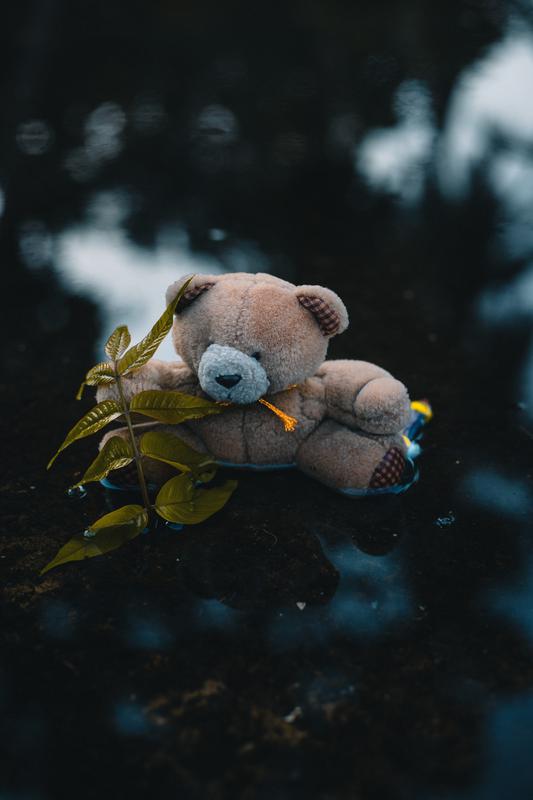Mud
The family was not one for camping, but as things fell apart, the way they do with time, the father bought an oversized canvas tent, big enough for the two boys, two girls and their mother. Sleeping bags, food in coolers and cans, clothes and cards, just the right number of teddy bears, flashlights, and an old Coleman stove went into the station wagon and the kids snuffled in and the father drove over the state line, as if by crossing a border he might enter a new land. Adventure filled the air as the children sang songs and played “I Spy” and the mother passed around snacks, and the father drove, and when they got to the campsite by the side of a lake, they tumbled out of the car and ran toward the water, shoes flying. Days of hiking and swimming, nights by a fire telling ghostly family stories, like the one about the old auntie whose intended died in the War to End All Wars, and how she roamed the old family homestead weeping, or the uncle who’d shot a bear that killed his prized dog, but not the story about the brother who wasn’t with them, the one who went away, and by that fire they hugged one another and tried to forget the scary things, but still, when they slept at night, cries could be heard, and the father’s was the loudest of them all. And then one afternoon after swimming, it rained in a never-ending cascade, and the father grabbed the smallest girl and a bar of soap and they stepped out into the clearing and the rain came down. Not hard but fat, gentle drops that felt like wet moonlight, and the father and his smallest girl, the girl who still remembered, who like him could be heard at night, they passed the bar of soap back and forth and they lathered up and the bubbles fell around them in silvery-white foam that the mud ate. The soap slid over their skin like a prayer, and the girl lifted her eyes to her father, who held his arms out high, like a thirsty tree, and she lifted her tawny arms high and felt something new and delicious, and perhaps it was God telling her something, what it was cannot be known, but for all her days she thanked her father for the gift of knowing she could be washed clean, of knowing that she didn’t have to always remember, that the earth would take back the dirt and something new would grow. And that when the memories came, the smallest sister could wash them in the dark and in the quiet, rinse away the blood and filth, and send them on their way until the morning.
____________________________________________________________________________________________________________________________
Catherine Parnell
____________________________________________________________________________________________________________________________
____________________________________________________________________________________________________________________________
FICTION
Photo by Ahmed Zayan on Unsplash
Catherine Parnell is an editor, teacher and co-founder of Birch Bark Editing. Her publications include the memoir The Kingdom of His Will, as well as stories, interviews and blog posts in Tenderly, Cleaver, Free State Review, Barnhouse, The Brooklyn Rail, The Rumpus, The Southampton Review, The Baltimore Review, and other literary magazines, as well as various newspapers and newsletters.
______________________________________________________________________________________________________________________________________
©2021 West Trade Review
__________________________________________________________________________________________________________________________________________________________________________
Stay Connected to Our Literary Community. Subscribe to Our Newsletter



